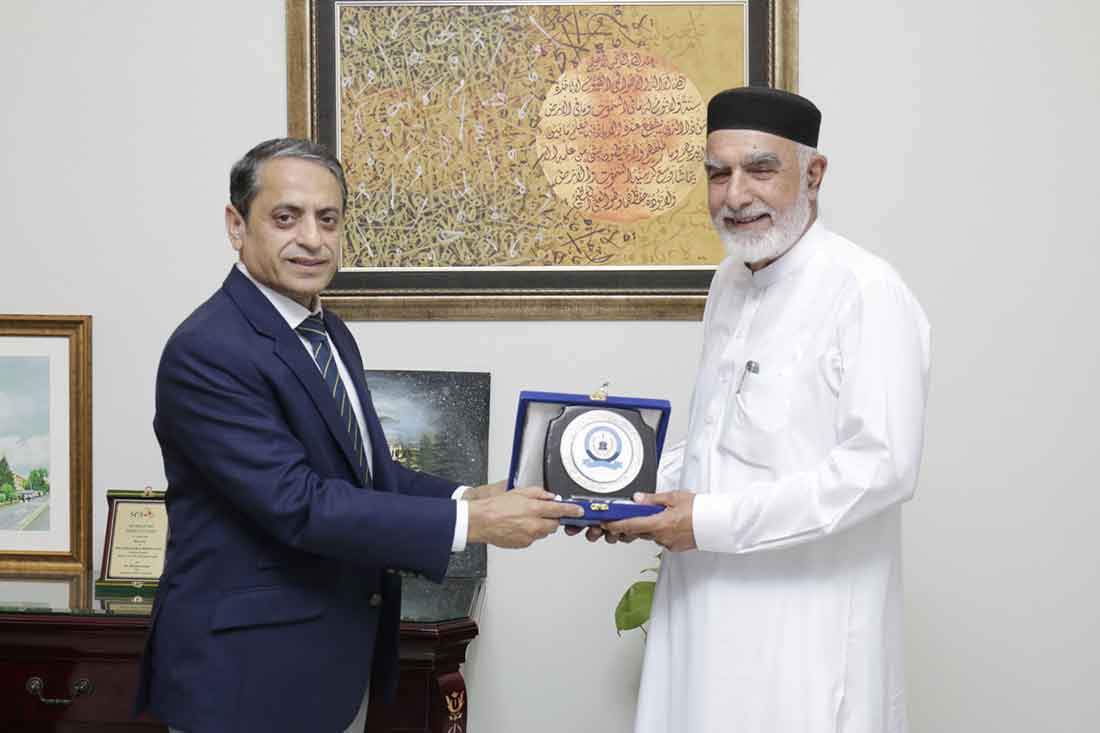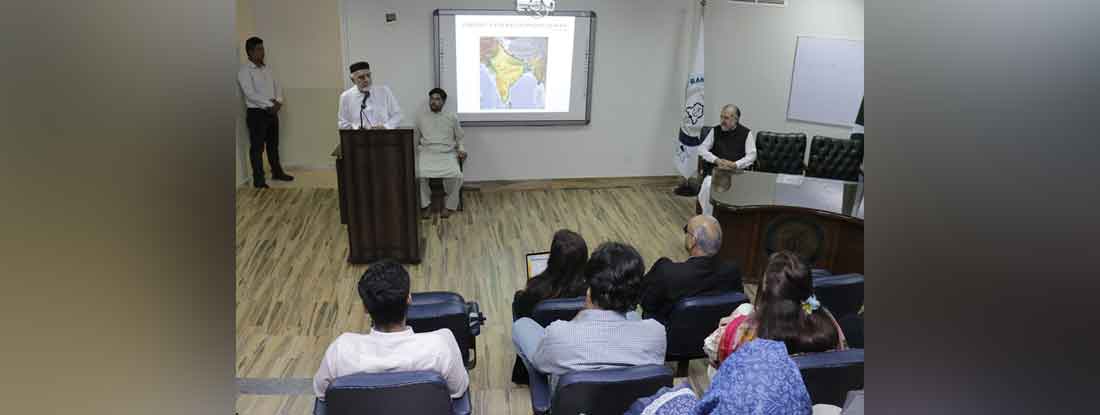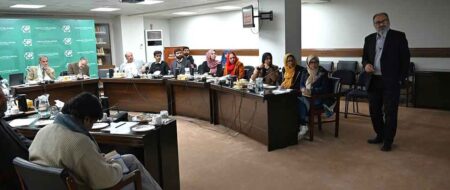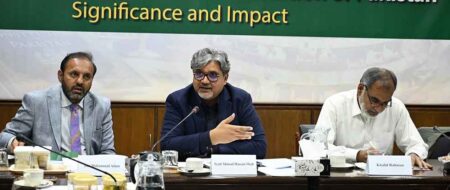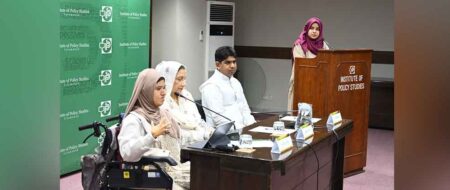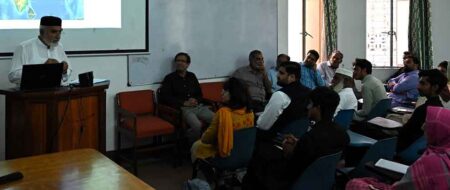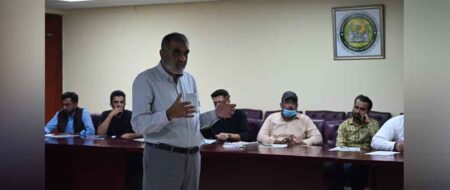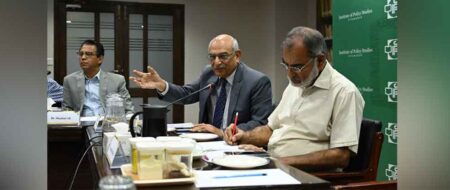Pakistan is a ‘natural geopolitical state’ – Owais Ahmed Ghani’s lecture at Bahria University
The South Asian subcontinent has experienced political unification for only about 236 years – roughly 9% of its recorded history of 2,600 years. For the remainder of this period, the region has largely remained fragmented. In this regard, Pakistan has emerged as the modern political manifestation of the Indus River region, making it a “natural geopolitical state.”
This was noted by Owais Ahmed Ghani, former governor of Khyber Pakhtunkhwa and Balochistan and member of the Institute of Policy Studies (IPS)’ National Advisory Council, during his lecture on ‘Pakistan: A Natural Geopolitical State’ held at the School of Social Sciences and Humanities, Bahria University, Islamabad Campus, in collaboration with IPS on October 17, 2024.
The lecture was joined by Ambassador (r) Syed Abrar Hussain, vice chairman IPS, Dr Shoaib Suddle, director and senior fellow, Global Think Tank Network, National University of Science and Technology (NUST), and Syeda Sughra Imam, former senator. The lecture was attended by undergraduate and postgraduate students of the university.
In his lecture, Owais Ghani presented a comprehensive historical analysis that positioned Pakistan, centered in the Indus River region, as a distinct political entity throughout history. He highlighted that the region’s unique geopolitical and cultural identity has consistently set it apart from the rest of the subcontinent. Drawing on 2,600 years of history, Ghani demonstrated that for the majority of this period, the Indus River region has functioned independently of the Ganga-Jumna region, with a distinct social, cultural, and political character.
He referenced his study on the same topic and highlighted that, since 600 BC, the subcontinent has experienced political unification for only 236 years (about 9% of its recorded history), under the Maurya, Tughlaq, Mughal, and British empires. Meanwhile, the Indus River region has maintained its distinctiveness, significantly shaped by influences from Persia, Central Asia, and the Muslim world, while the Ganga-Jumna region remained primarily Vedic-Hindu.
Drawing from this, he concluded that Pakistan, as the modern political manifestation of the Indus River region, can be rightfully considered a “natural state.” This socio-economic entity stretches from the Karakoram to the Arabian Sea and is bound together by a distinct cultural identity, further reinforced by Pakistan’s founding ideology – the Two-Nation Ideology. This ideology forms the basis of an inclusive Pakistani nationhood, bringing together diverse ethnic communities under a shared Muslim identity.
Ghani also underscored the strategic significance of the Hindu Kush Mountain range as a historical geopolitical fault line, noting that it has served as a gateway for invasions into the subcontinent from Central Asia and Persia throughout history. The Indus region, particularly its areas adjoining the Hindu Kush, has played a crucial role as the “Gatekeeper of the Hindu Kush,” bearing the brunt of initial invasions.
He emphasized that Pakistan has continued to fulfill this role in modern times, countering foreign interventions, notably by the Soviet Union and the United States during conflicts in Afghanistan. As global dynamics shift, with an emerging US-China superpower rivalry, Ghani stressed the need for Pakistan to remain vigilant and adapt to evolving security challenges along the Hindu-Kush fault line.
Drawing lessons from history, he advocated for strengthening Pakistan’s defense cooperation with Afghanistan. Historical precedents, such as the 8th-century alliance between the Turki-Shahi in Afghanistan and the Hindu-Shahi in the Indus region, demonstrated the effectiveness of coordinated defense efforts in deterring powerful adversaries. Therefore, establishing a special relationship with Afghanistan, Ghani suggested, could be pivotal in countering future military adventurism by foreign powers.
The lecture concluded with an interactive question and answer session by students.
